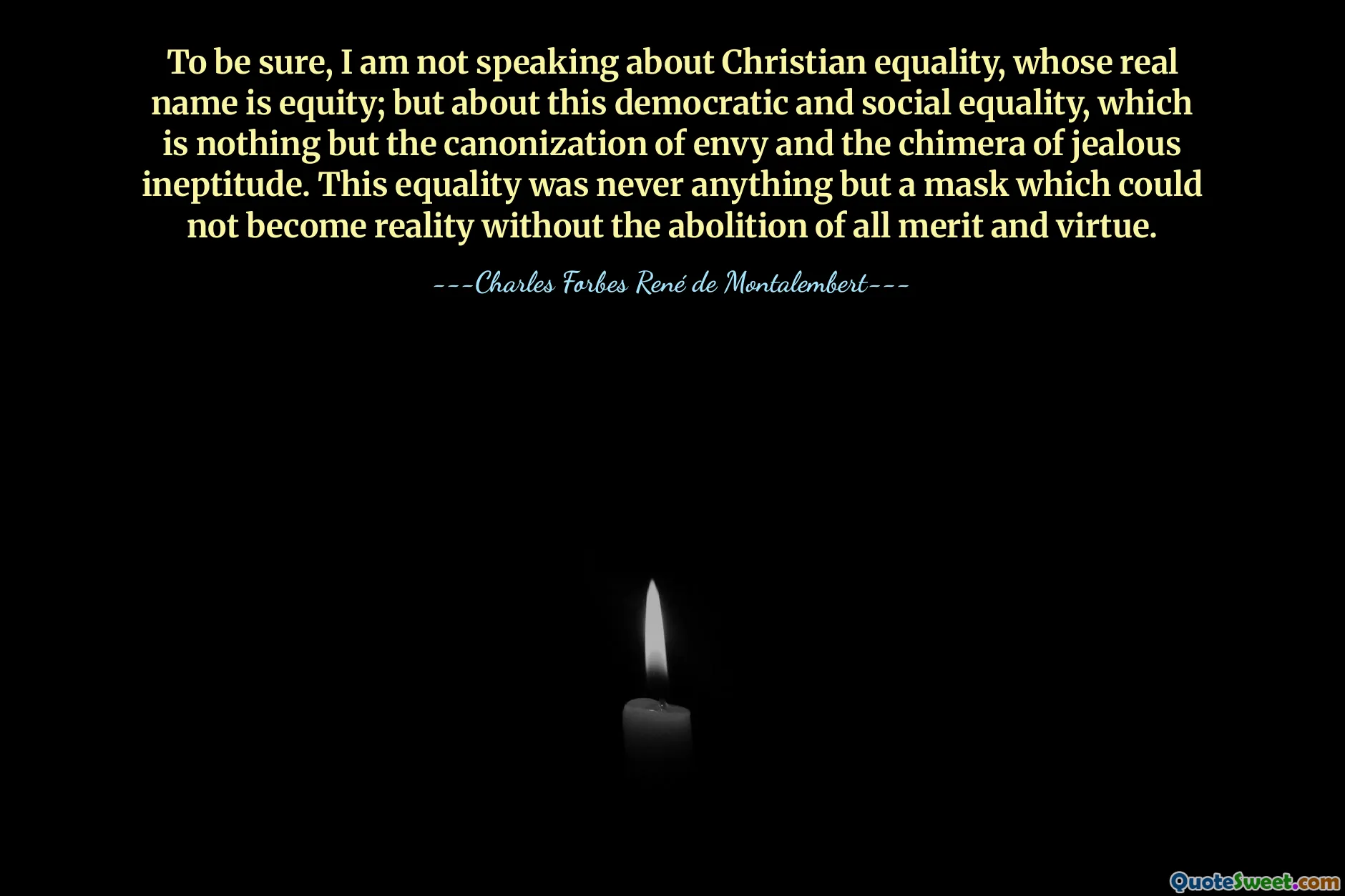
To be sure, I am not speaking about Christian equality, whose real name is equity; but about this democratic and social equality, which is nothing but the canonization of envy and the chimera of jealous ineptitude. This equality was never anything but a mask which could not become reality without the abolition of all merit and virtue.
This quote critically examines the concept of societal equality, differentiating between the true Christian notion of equity and the superficial or misguided pursuit of democratic and social equality. The latter, as depicted here, is portrayed as an envy-fueled ideal that masks underlying inequalities and fosters resentment rather than genuine fairness. The assertion that this form of equality is a 'chimera' suggests it is an illusion—an unattainable dream that, if forcibly imposed, would strip away the value of merit and virtue. The writer appears to argue that true societal progress involves recognizing individual differences and rewarding merit rather than enforcing equality that results in mediocrity and the suppression of excellence. Such a perspective invites reflection on the importance of virtues like meritocracy, which incentivize personal development and innovation, versus a misguided attempt to enforce blanket equality that undermines societal hierarchy and excellence. The quote challenges us to consider whether our societal ideals truly promote fairness or if, under the guise of equality, they suppress the very qualities that lead to progress and excellence. It raises ethical questions about the balance between equality and merit, urging us to think deeply about how policies and cultural norms impact virtues like achievement, talent, and sacrifice. Whether one agrees with the perspective or not, it provides a provocative lens through which to analyze societal values and the true meaning of justice.











